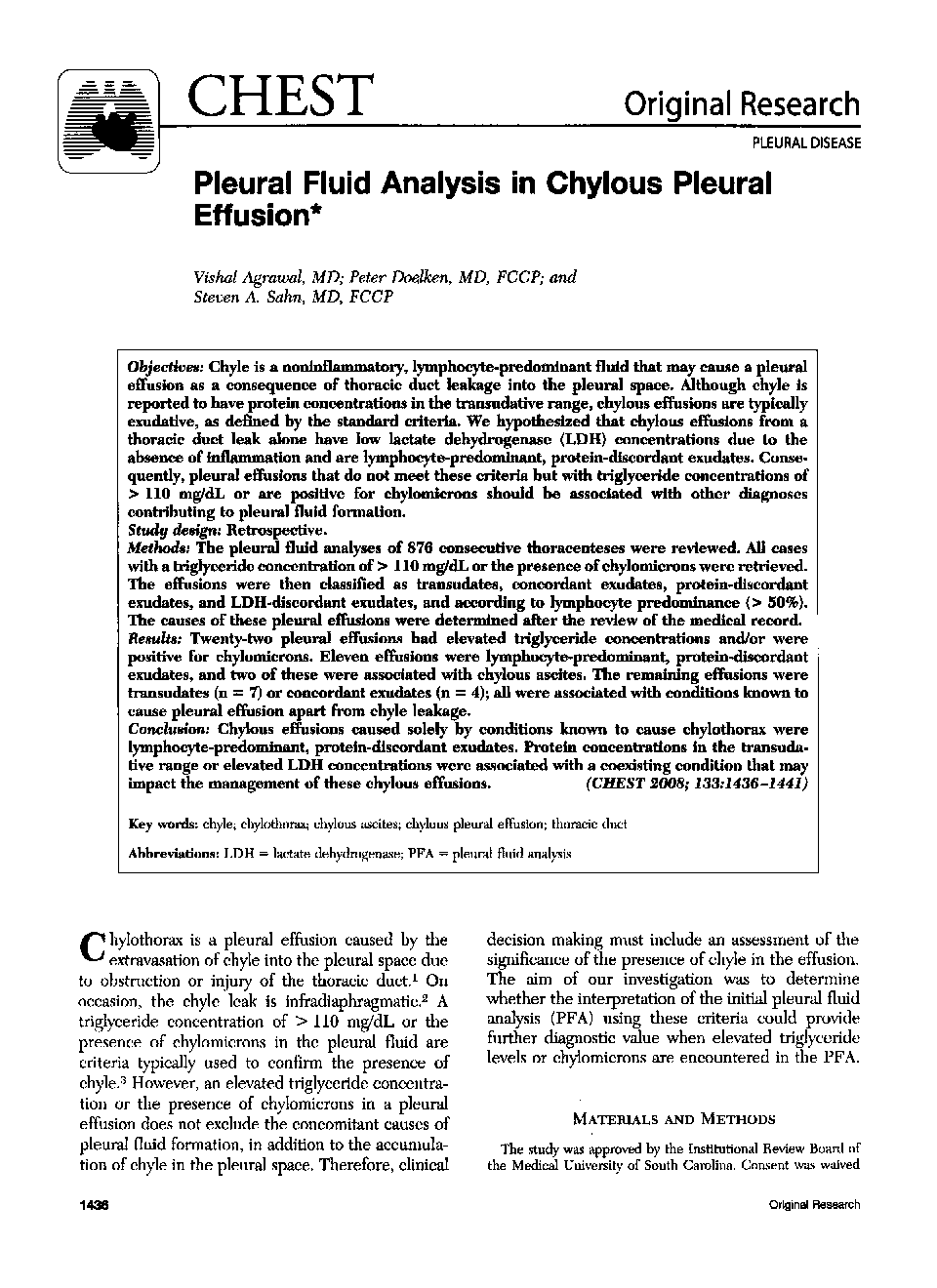| Article ID | Journal | Published Year | Pages | File Type |
|---|---|---|---|---|
| 2903496 | Chest | 2008 | 6 Pages |
ObjectivesChyle is a noninflammatory, lymphocyte-predominant fluid that may cause a pleural effusion as a consequence of thoracic duct leakage into the pleural space. Although chyle is reported to have protein concentrations in the transudative range, chylous effusions are typically exudative, as defined by the standard criteria. We hypothesized that chylous effusions from a thoracic duct leak alone have low lactate dehydrogenase (LDH) concentrations due to the absence of inflammation and are lymphocyte-predominant, protein-discordant exudates. Consequently, pleural effusions that do not meet these criteria but with triglyceride concentrations of >110 mg/dL or are positive for chylomicrons should be associated with other diagnoses contributing to pleural fluid formation.Study designRetrospective.MethodsThe pleural fluid analyses of 876 consecutive thoracenteses were reviewed. All cases with a triglyceride concentration of >110 mg/dL or the presence of chylomicrons were retrieved. The effusions were then classified as transudates, concordant exudates, protein-discordant exudates, and LDH-discordant exudates, and according to lymphocyte predominance (>50%). The causes of these pleural effusions were determined after the review of the medical record.ResultsTwenty-two pleural effusions had elevated triglyceride concentrations and/or were positive for chylomicrons. Eleven effusions were lymphocyte-predominant, protein-discordant exudates, and two of these were associated with chylous ascites. The remaining effusions were transudates (n=7) or concordant exudates (n=4); all were associated with conditions known to cause pleural effusion apart from chyle leakage.ConclusionChylous effusions caused solely by conditions known to cause chylothorax were lymphocyte-predominant, protein-discordant exudates. Protein concentrations in the transudative range or elevated LDH concentrations were associated with a coexisting condition that may impact the management of these chylous effusions.
